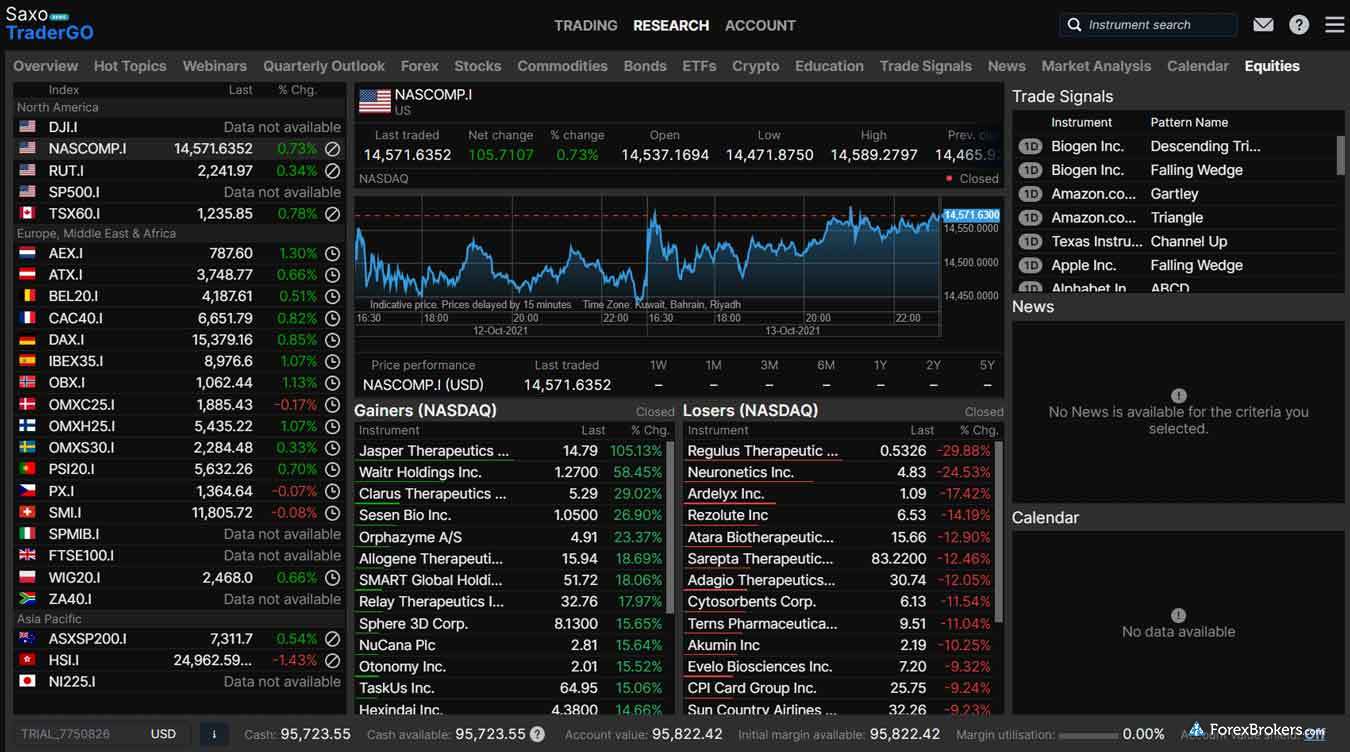Arbitrage trading is a technique traders and investors use to gain an advantage over price discrepancies between securities. This trading strategy is popular because it allows traders to buy at low prices and sell at high prices with the utmost precision.
As a seasoned trader, you must know what arbitrage trading is, but if you’re a novice, your first question will be: what is arbitrage trading? In this article, let’s understand arbitrage trading meaning, how it works, and how to do arbitrage trading in India.
Meaning Of Arbitrage Trading
The practice of arbitrage trading involves taking advantage of price discrepancies or inefficiencies in the financial markets to make a profit. To exploit price variations, securities or assets are simultaneously purchased and sold in different markets.
Arbitrage trading is based on the principle that the same asset should not display price differences in an efficient and effective market. However, there are temporary differences in price due to factors such as imbalances in supply and demand, transaction costs, and information asymmetry.
When traders purchase an asset at a lower price in one market and sell it at a higher price in another, they are using arbitrage to make a profit. It involves large volumes of trading and quick trade executions in arbitrage trading. The process of trading requires traders to open demat account. For arbitrage trading to be effective, traders must have sufficient capital, efficient systems for executing trades, and reliable market data.
How Arbitrage Trading Works?
The purpose of arbitrage trading is to exploit inefficiencies in the market or discrepancies in other relevant assets. The mechanism is quite simple and focuses primarily on capturing differences in prices between markets.
Arbitrage traders buy undervalued assets from one market and sell them at relatively higher prices to another. The first step is to identify market discrepancies, which is done by spotting price differences across different markets. After identifying potential opportunities, traders need to act quickly to execute trades.
Here, profit is not derived from market movements but rather from price differentiation. The key to success in arbitrage trading is knowing the market in-depth, having access to different markets, and being able to adapt to changing market conditions. The correct execution of arbitrage trades and risk management are also crucial for navigating the complexities of arbitrage trading efficiently.
Arbitrage Trading in India
As with any other market, arbitrage trading in India aims to generate profits by exploiting price discrepancies between different markets. There are some specific considerations that must be taken into account when considering arbitrage trading in India. These are:
Segmentation of The Market
The Indian markets are usually segmented by exchanges, such as the BSE and NSE, as well as derivative markets. These platforms’ differences in price offer arbitrage traders ample opportunities to profit.
Cash-Futures Arbitrage
It is common to find arbitrage opportunities between futures and cash markets. In the cash market, traders can buy and sell stocks and simultaneously take opposite positions in futures contracts, thereby securing the price differential.
Regulatory And Tax Considerations
Taxes and regulatory requirements must be considered by Indian arbitrage traders. It is essential that they adhere to market manipulation guidelines, insider trading, and exchange regulations, as well as applicable securities laws. Calculating profits properly also requires knowledge of capital gains regulations and tax laws.
Liquidity And Volatility
The volatility and liquidity of online trading in share market have a significant impact on arbitrage trading. Having a high level of liquidity makes it easier to execute trades and capture profits. Volatility can introduce additional risks as it can result in a rapid change in price as well as an increase in transaction costs during times of stress in the market.
Currency Arbitrage
Due to India’s use of multiple currencies, traders can also consider currency arbitrage opportunities when engaging in foreign exchange or futures currency transactions. Using this strategy, two markets are used at the same time to buy and sell the same security. Currency arbitrage can include two-currency and three-currency strategies
Connectivity And Technology
The role of technology in arbitrage trading is crucial. For capturing and exploiting price discrepancies, traders need high-speed connectivity, algorithmic trading systems, and data feeds. Therefore, it is essential for arbitrage traders to have access to advanced tools and reliable stock market app like Kotak Securities.
Conclusion
The arbitrage trading strategy helps traders profit from price discrepancies. In spite of its many advantages, this strategy has potential risks as well. To succeed in arbitrage trading, one must develop expert knowledge of the market, be able to execute trades quickly, and maintain the utmost discipline. A high profit margin is also dependent on the efficient use of advanced technology, adapting to changing market conditions, and using analytical tools.




